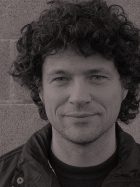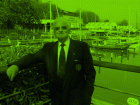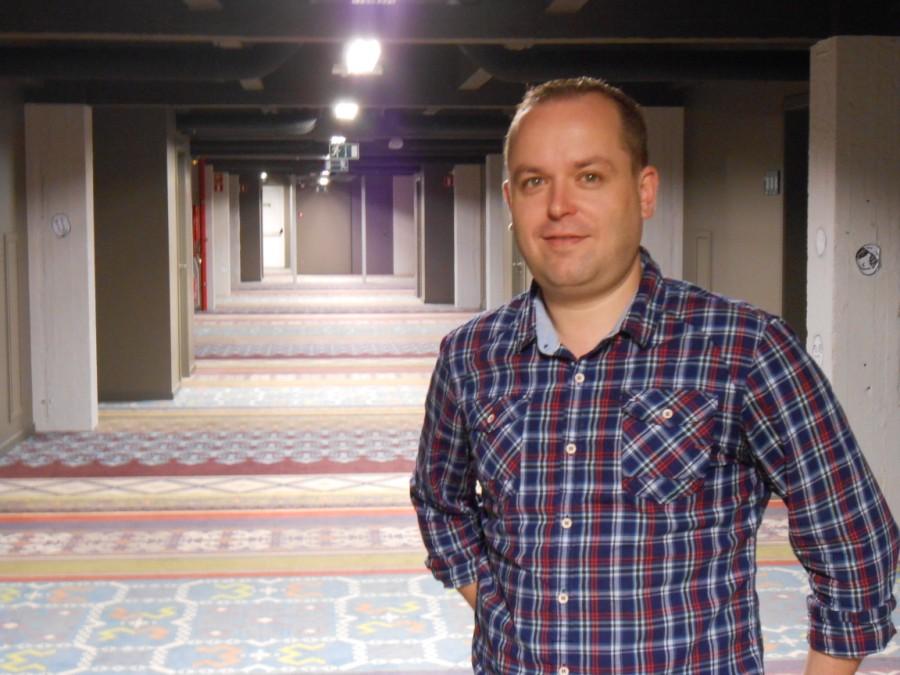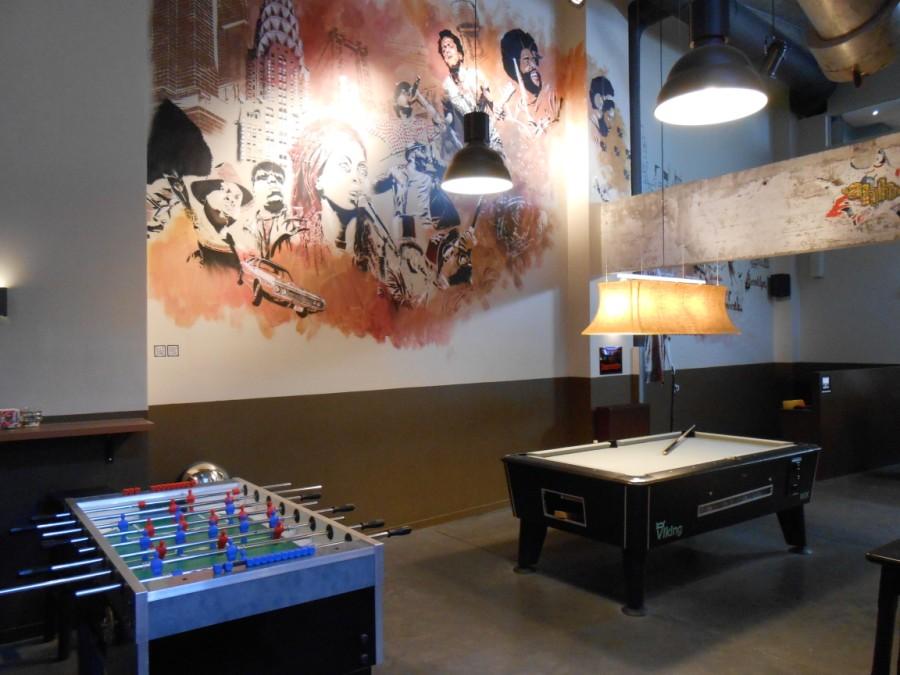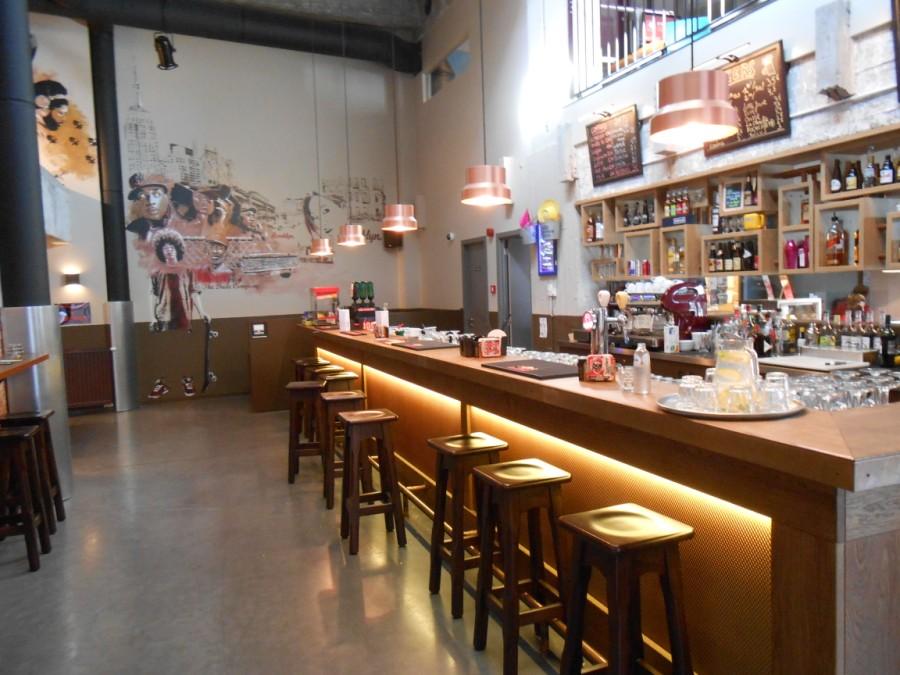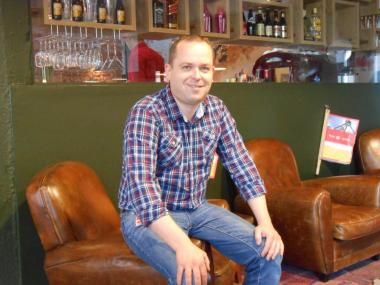
Four months after the opening of the first hotel with a view over Brussels’ Canal, we meet its happy manager, Tom Debrabandere.
2013-09-16 – It was back on 1 May this year, the workers had just left this part of the former Belle-Vue brewery, and the Nelson Canal project had been dubbed Meininger Hotel Brussels City Center. You might think that it would have taken a while for the grapevine to start working, or that princely sums would have had to be lavished on advertising in order to bring in reservations, but you would be mistaken: the bookings started pouring in before the hotel’s doors had even opened. Meininger is a group operating internationally, and has a strong profile in Berlin, Vienna, Amsterdam and London which automatically benefits any new group hotel. For good measure, the hotel is also listed on 22 online hotel booking sites.
Even so, the 17,000 nights of accommodation in the first month were good news for Tom Debrabandere. The Junior Operations Manager, who has just turned 36, smiles with satisfaction. With the building, the facilities, the guests, his team and his line management.
The short-stay business
Debrabandere was already familiar with tourism, but in a completely different part of the sector. He previously worked for a tour operator specialising in stays at summer and winter resorts. ”It was Saturday-to-Saturday bookings,” he says,“which is very different from the short-stay guests you tend to have in the big cities, whether for business or a getaway break.” In order to get to grips with his new job, he therefore went on an operational training course in Berlin, where Meininger’s head office is located and all its services are centralised, before spending time at group hotels in Vienna and Amsterdam.
On his arrival in Brussels to take up his role there, his first task was to recruit the staff. No fewer than 1,800 applications were received on Meininger’s website and via Actiris. 300 candidates were interviewed, and 22 were taken on and given training – it made no difference that these young people already had experience in the hospitality and catering trade. They are all natives of Brussels, young, dynamic and friendly, and the lack of hierarchy (apart from the manager) compels them to show initiative. As a useful exercise, and in order to get things going, a dress rehearsal was conducted the day before the opening, with staff from other sites and their families.
Various categories of traveller
Business has been good ever since. In August alone, the hotel recorded more than 19,000 nights, with an 86% occupancy rate for its 719 beds! The guests fall into several categories, whose frequency varies with the time of year. In May and June, most of the guests were families and groups, in particular via the German operators, while in July – the height of the festival season in Belgium – up to 70% of the clientele were backpackers. August saw the return of the families, while in September reservations are expected from groups and schools, but also from businessmen attracted by the hotel’s friendly atmosphere.
However, the season has been excellent for the entire hotel sector in Brussels, and Tom Debrabandere doesn’t see himself as a competitor in a pre-existing context. On the contrary, he claims that the hotel represents a new service: “Tourists stream through Brussels, but only for short stays,” he explains.“Groups come for four or five nights, but the backpackers only stay a night or two. Previously, the latter group wouldn’t even stay in the capital: they would just stop for a few hours on the way to Bruges, Amsterdam or Paris.”
Employees with plenty of useful tips
The level of comfort offered at a highly attractive price (representing a low-cost three stars) is not the only explanation that the manager offers for this success: here at reception, there are tickets available for various tourist attractions. The staff are expected to find out what trips have been made or planned, and every opportunity is thus taken to engage in dialogue. For example, instead of a drinks machine in the lobby there is a fridge, which means that guests have to pay for their drink at reception. This contributes to the family atmosphere that the hotel wants to create.
In any case, the formula seems to be working: after four months, the Meininger Hotel Brussels City Center has taken eighth place among the capital’s 193 hotels on the travel planning and review website TripAdvisor, and scores 8.4 on the satisfaction scale.
Industrial structure and internal décor based on street art
Asked whether location is a factor in this success, Tom Debrabandere points to the proximity of the city centre: the Grand-Place is just ten minutes’ walk away. He doesn’t see the Canal as a source of attraction in itself, but says that the building is. “Apart from at airports, Meininger has always based itself at locations which have been converted from their initial function. In Amsterdam, we’re in a former ING office building. In Berlin, we’re in former individual houses. In London, it’s Baden-Powell House (belonging to the scouting association). Here, at the former Belle-Vue brewery, the fact that the industrial structure has been incorporated into the conversion and that we have opted for internal décor based on street art gives the hotel a very distinctive image that goes down well with the guests. It’s anything but anonymous, neutral or uniform,” says the manager with pride.
The plans for the future Espace Hôtelier Bellevue being developed just next door by the municipality of Molenbeek, in the other section of the former brewery site, will inevitably increase the Meininger Hôtel’s visibility. Dialogue with the municipal authorities has proved constructive, particularly with regard to the safety in the immediate vicinity. But Tom Debrabandere believes there is still work to do on promoting tourism. “This is an angle that absolutely has to be worked on: there is no map of the municipality that can be handed out to curious travellers, and no free leaflet about the local sights.” Not yet, at any rate, because there are plans. What Debrabandere does know is that Molenbeek has its fair share of treasures off the beaten track. He has tried them out himself – the tour of notable building façades, the walk by the Canal… But until there is some printed information to give to people who are interested, he can’t do anything.
Molenbeek Cultural Capital 2014, which will start in a few months’ time, is sure to be an opportunity. “We will be bringing several thousand potential customers here, and that’s got to be good for business in Molenbeek.”
Véronique KIRSZBAUM









